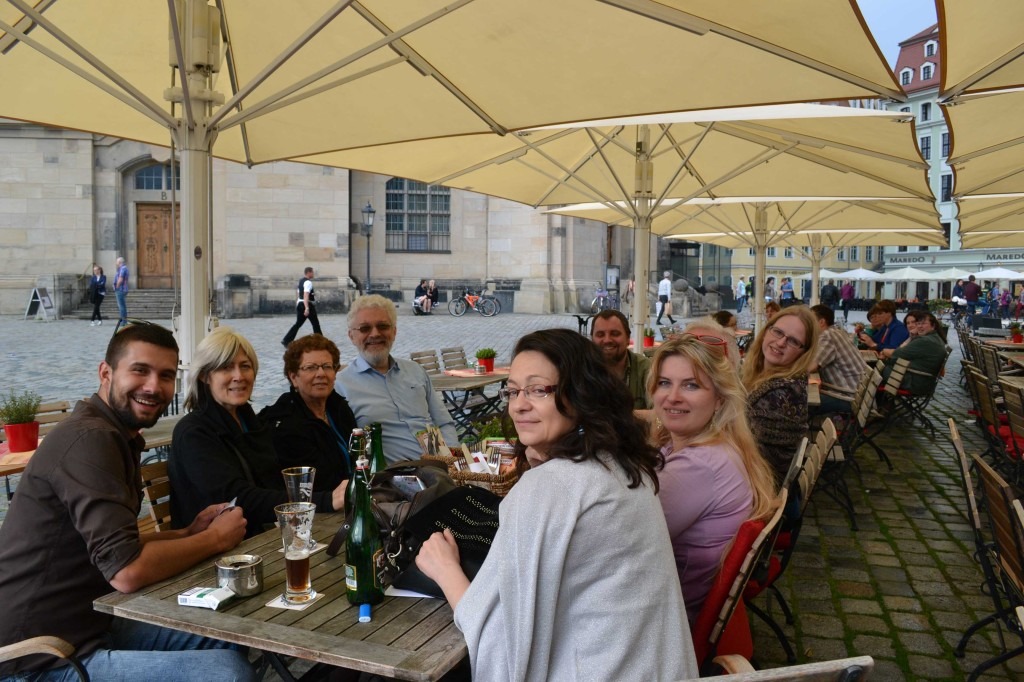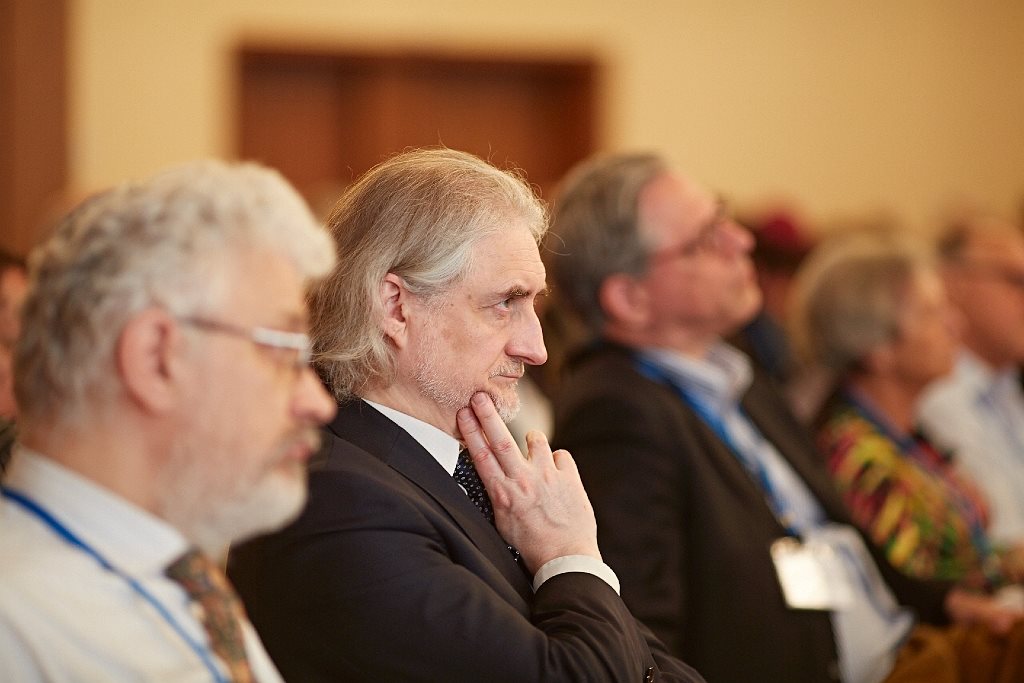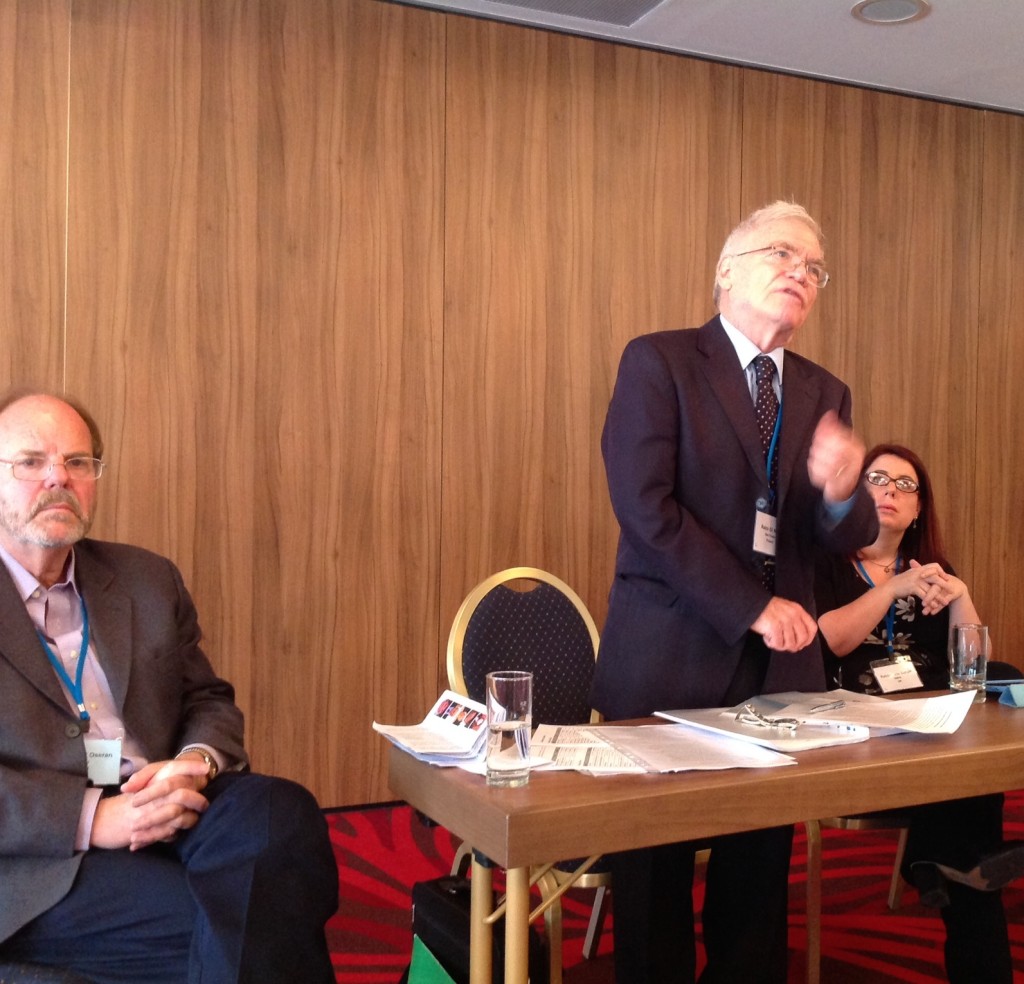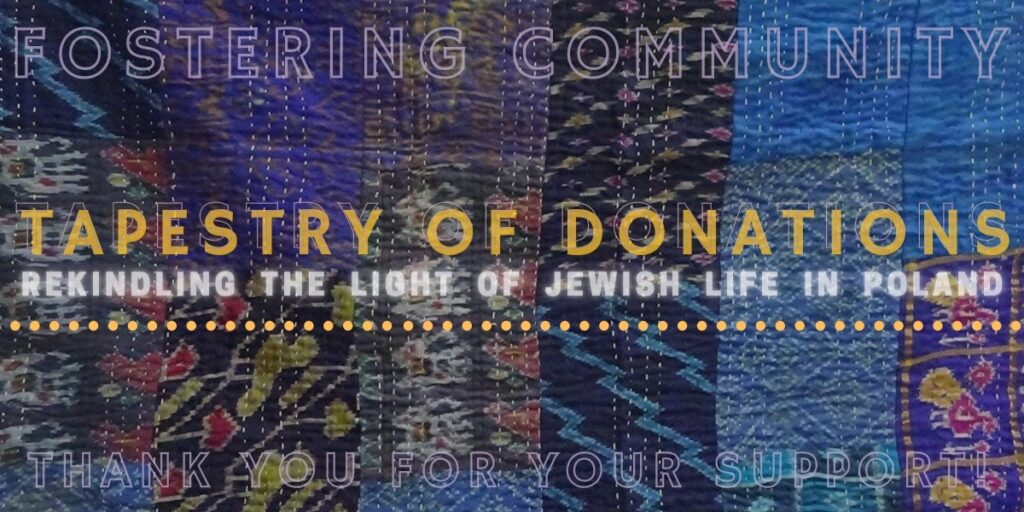Reflections on “Faith in Action” European Union for Progressive Judaism Conference, in Dresden, Germany
Dr. Joanna Auron is a member of the board of Beit Polska. Her book “Describing Who? Polish Photographs by Jewish Photographers” will soon be published on Peter Lang press.
This lyrical reflection on the European Union for Progressive Judaism conference “Faith in Action” conveys some of the experience of 11 person delegation.
The powerful experience of recovering an awareness of the great diversity in the Jewish people as well as the clashing of ideas opens the path to a profound sense of connection.
Thanks to our delegation who represented us so strongly.
We are grateful to the EUPJ for extending to Beit Polska formal recognition as the umbrella organization for Progressive Judaism in Poland. We are now nine communities.
Rabbi Haim Dov Beliak
After the FAITH IN ACTION EUPJ 2014 Dresden Conference
Nearly three hundred delegates representing two million Jews from various communities assembled together for three days meant one could listen in on friendly conversations and eavesdrop on heart-to-heart duets but, also, kibbitz on fights to tear limb from intellectual limb. (After all, each Jew is a dealer in truths.)
On day three, Shabbat morning, a line of Jews went up behind the bimah ((bima an elevated platform in the synagogue)) to recite blessings in their native tongues, and I tuned in to listen in for the still small voice ((still small voice King James (I Kings 19:11-13) evocative translation for what is today referred to as conscience)) that I knew could make itself heard in between words of prayer. At first, merely a whisper from afar, mellow in its melody of one who is struggling to be heard; followed by the singsong lilt of a new-found friend, each of her words as clear as the Dresden sky; the pitter-patter sounds of Czech; the meaty, no-nonsense Russian; the clear joyful vowels of Spanish; the familiar soft-spoken Polish; Israeli Hebrew, forceful, perfectly comprehended: all of our Jewish voices praying to thank the Creator of All Things for keeping the intricate mechanism of the world its place.
Down by the river Elbe, arguing or affectionate, we were as true to our truths as the beautiful Dresden is fake, its brick-by-brick restoration to old glories making us want to give thanks to the Freer of Captives ((Freer of Captives a reference to one of the terms for God’s exemplary manifestation expressed in morning prayers of gratitude)) for enabling in us the courage to discard theological posturing that poses for faithfulness; Dresden, its skies azure on pure faith, watched us learn to love our manifold differences over the one sweet similarity we share (similarities tending to get as oversweet as half-eaten Sachertorte.)
The Elbe flew through the city like the river Yabbok ((Yabbok is the site of Jacobs famous wrestling match with “a man” Gen. 32:22.)); we saw time and again that people get hurt by exclusivist self-descriptions; for it is not before my face mirrors the face of the stranger that I can confront his and her bruises; and it is not before I reject the pleasure of forcing my own conformism upon you that I can extend my heart through God unto you; and it is not a day before I choose to shield the Other from rejection or shame that I am truly acting upon the knowledge that it is not who I am in myself that matters, but who I can become for you.
Silent on the black bridge in Dresden two Jews thanked the Knower of Secrets ((Knower of Secrets (Yoda’a Ta’amulot) a evocation of God’s name)) for crossing our paths; in the shadow of the checkered walls of the Frauenkirche ((Frauenkirche was destroyed in the bombing of Dresden but re-built after German unification with new stones and original stones.)) three Jews offered thanks for giving us the grit to tell the difference between integrity and haughtiness; at the Jüdenhof ((Jüdenhof was the commercial center of Dresden Jewish life in the middle ages)) six Jews wrestled the angel and did better than agree to disagree; stepping past the flat stolpersteine ((stolpesteiner small plaques with names of Jews who lived in certain buildings until the Nazi on slaught. These small stones are supposed to be stumbled over to remind one people of an absence.)) eight Jews promised to remember another’s grandparents as steadfastly as one does one’s own; in the New Synagogue ten Jews realized that it is through being Jews together, not the accident of birth or ritual skinny dipping, that one works out being a Jew.
From the bridge over the river Elbe I fell head over heels in love with my people, yet again. One Jew, overawed, grateful to God for enabling the words in our mouths.
For additional speeches and sermons click here.
For video click here.





Leave a Reply